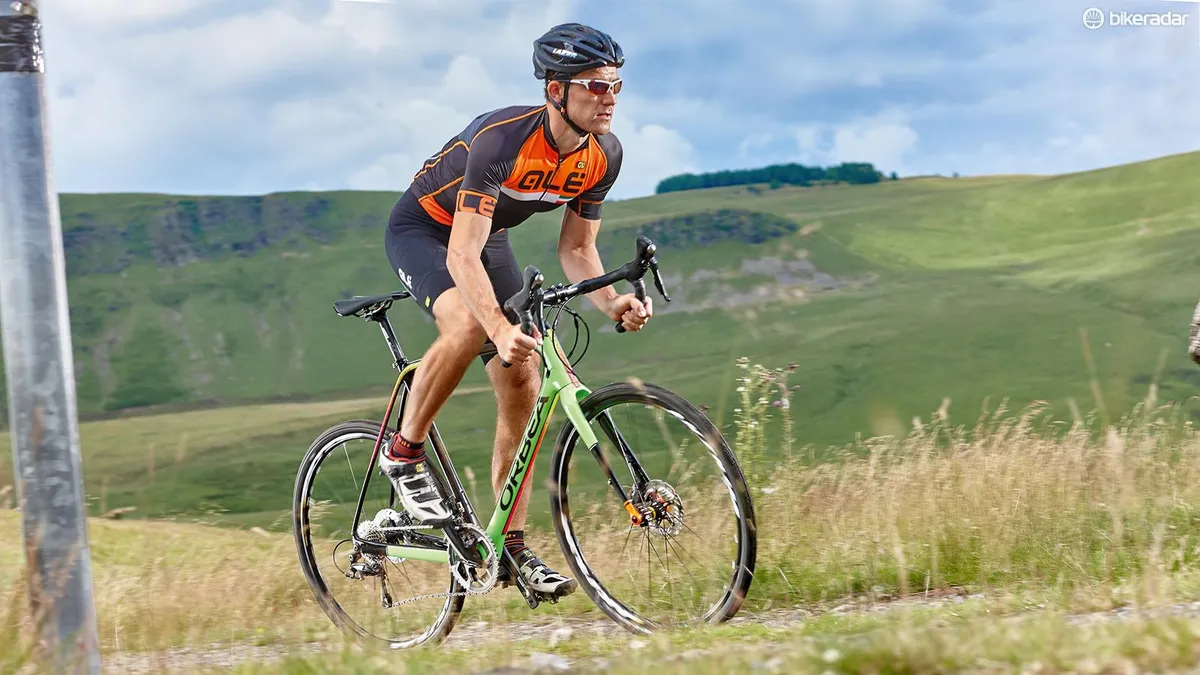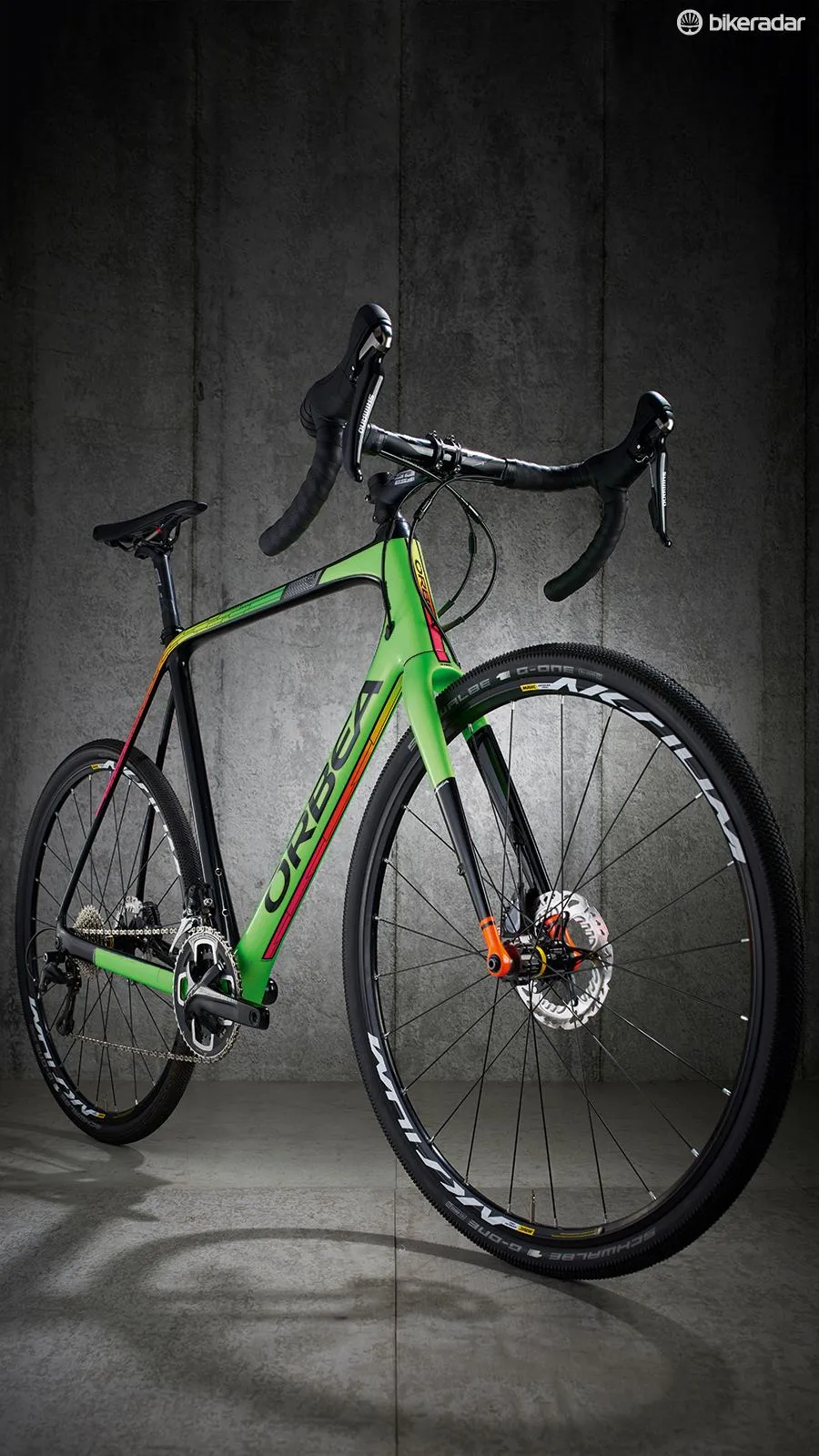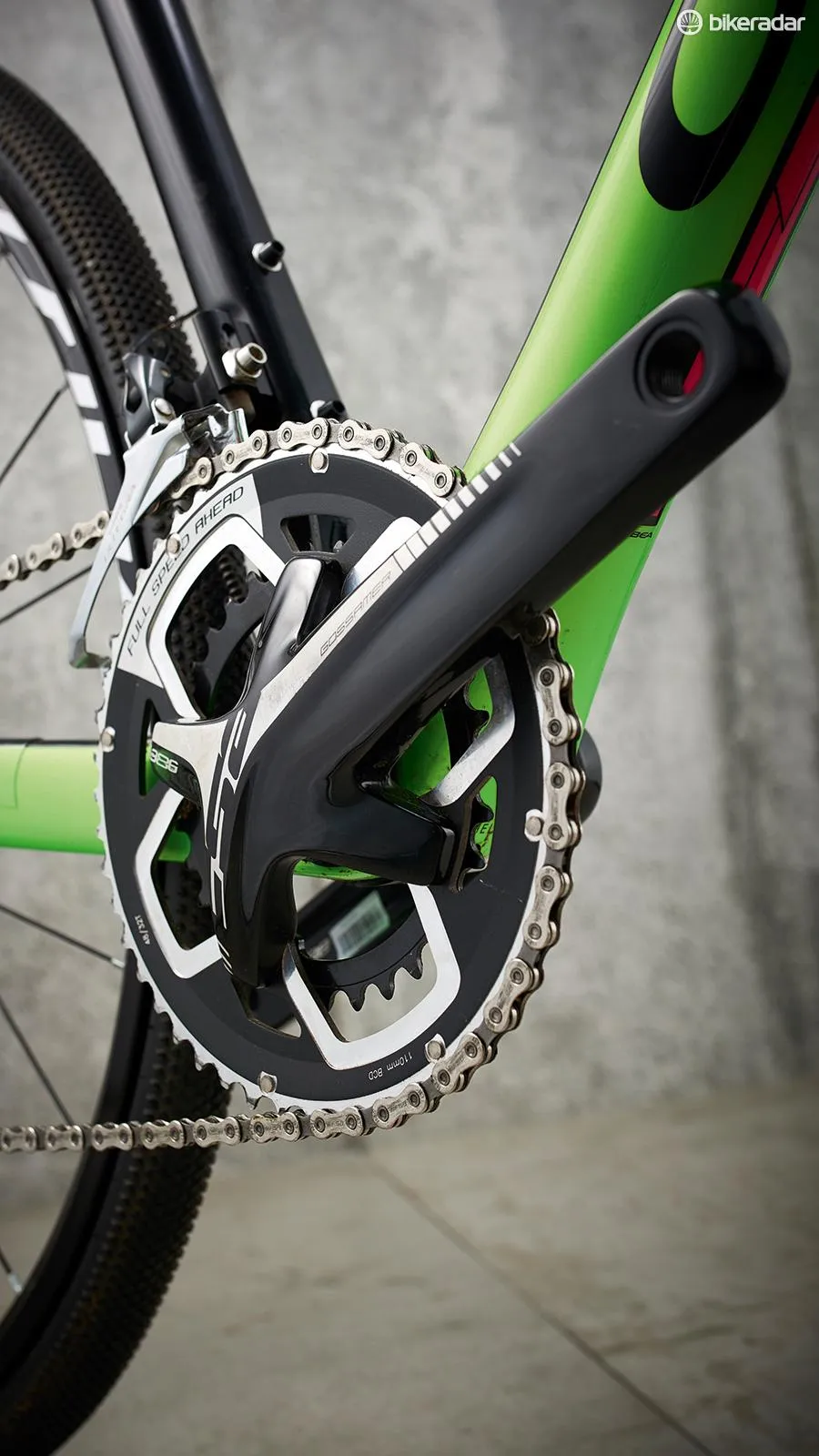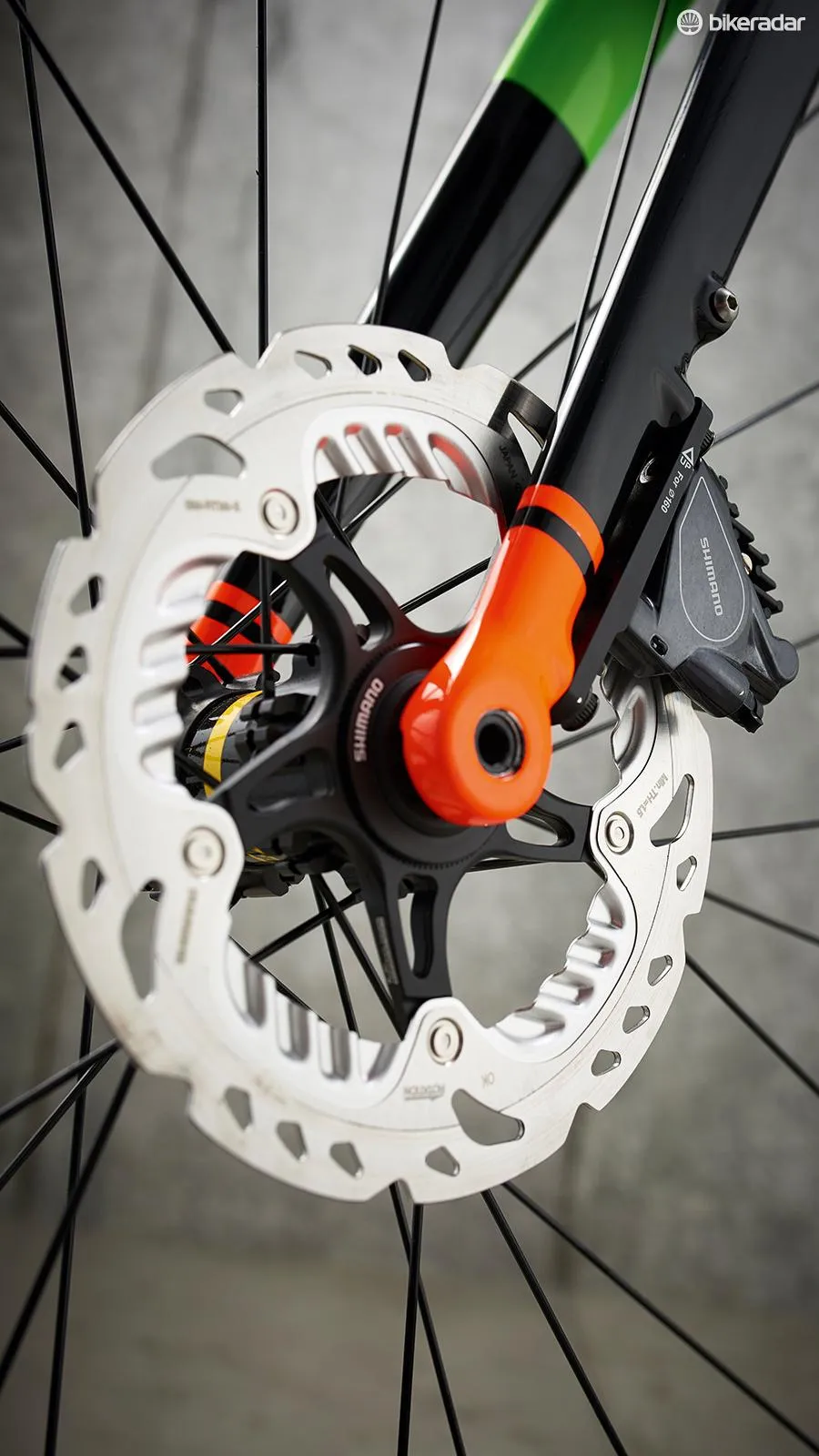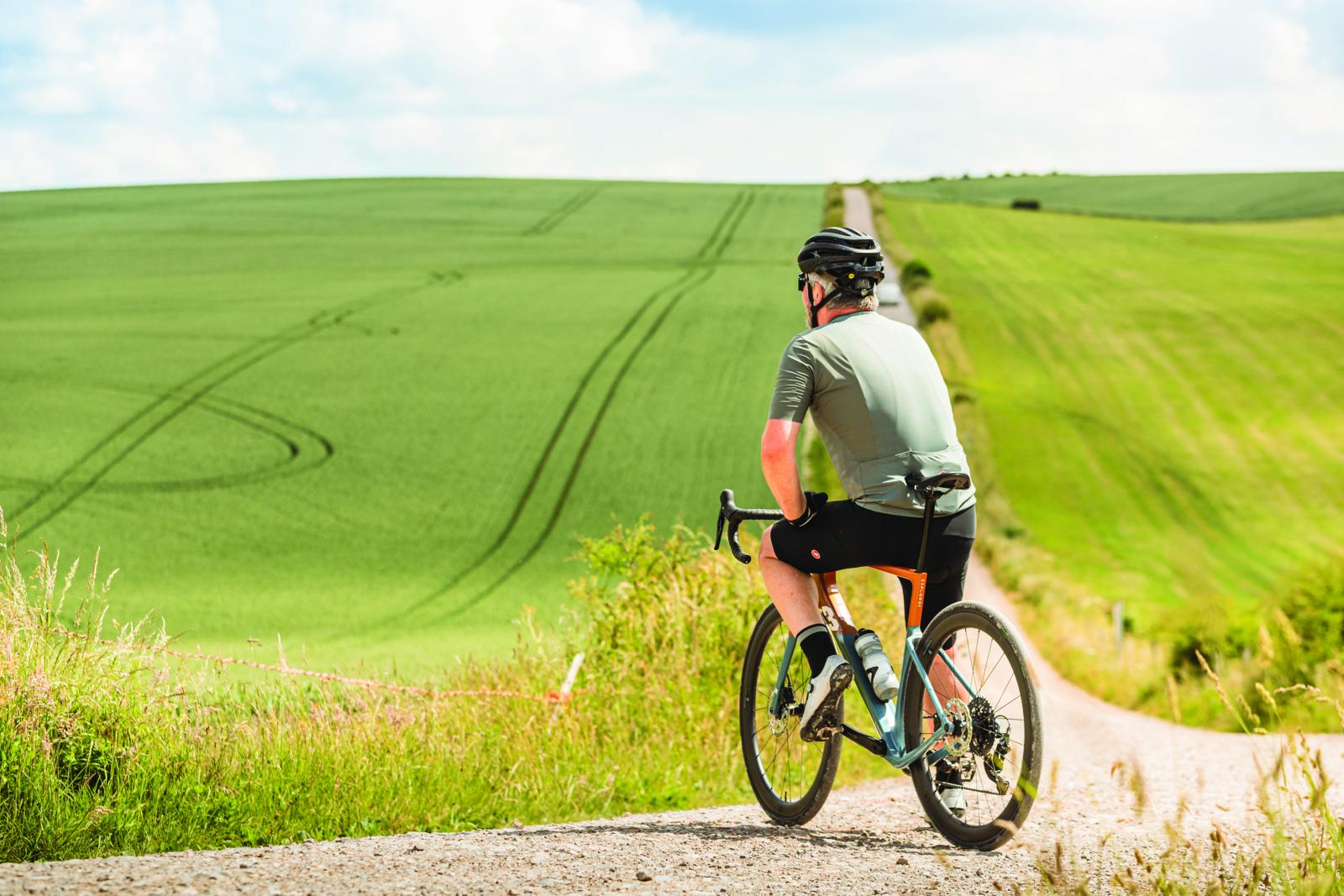Orbea is known as a race-focused brand that has a long association with professional cycling. Numerous world and Olympic champs have ridden its bikes. Its new Terra, however, is something of a departure, being every inch a gravel bike. With only a handful of events in Europe to suit this type of bike, Orbea has built something that’s more about the fun of riding, and that’s fine by us.
Specifications
- Weight: 9.18kg (L)
- Frame: Terra OMP carbon
- Fork: Terra carbon
- Gears: FSA Gossamer 48/32, 11-32
- Chainset: FSA Gossamer
- Brakes: Shimano BR-RS805
- Wheels: Mavic Aksium disc
- Tyres: 1.5in Schwalbe G-One
- Handlebar: FSA Energy
- Stem: FSA Energy
- Saddle: Prologo Nago Space
Orbea claims an 1,190g frame weight for the Terra and since its a bike built for toughness not lightness that’s a decent compromise weight wise. Orbea backs up that toughness claim with a lifetime warranty.
It's not only tough though, the Terra's versatile too – mudguard and rack mounts on the frame, allow it to easily take on bike-packing and daily commuting as well as gravel riding and racing. With the right tyres you could even consider cyclocross.
The Terra’s tyre clearances have been optimised for 40mm gravel tyres if you're heading off-road and 28mm rubber if you're staying on it. Even though the test bike came specced with fat Schwalbe G-Ones, a gravel-friendly 48/32 chainset and an 11-32 cassette, I was impressed with the way the Terra covered tarmac. Aside from the buzz of the tyres when cornering and the slightly sluggish acceleration, compared to slicks, the Terra is a great companion for road riding.
The traditionally shaped frame means a solid base and the stiffness through the drivetrain makes for a responsive ride. Up front the slightly longer fork is designed to offer flex in its lower two-thirds to take the sting out of rough roads and rutted trails.
Orbea uses special carbon lay-ups – something it calls ‘Dynamic Structure’ – at the head tube, seat tube / top tube joint and above the front and rear dropouts to help absorb vibrations. I can’t vouch for the slightly secretive design, but on broken and rougher dirt surfaces the Terra is impressive. It doesn’t jar or jolt but doesn’t feel soft either.
The Terra is part of Orbea’s MyO program so you can choose options on some of the finishing components, gear ratios and, more interestingly, the paint scheme. I love the ’90s-inspired fluoro touches on the test Terra, but if you have more modest tastes there are plenty of options for you.
Ride-wise there's a lot to like about the Terra and it’s one of the best I’ve tried for covering grit and gravel quickly. It’s also impressively light for a bike of this type at just over 9kg, but in terms of value we do have some reservations.
At just under £2,800 I’d have expected a full Ultegra groupset. And while I can forgive the down-spec to FSA’s Gossamer chainset as Shimano doesn’t yet offer a gravel-friendly 48/32 option, the entry-level FSA Energy bar and stem come across as a little below the Terra’s pay grade. As do Mavic’s highly competent yet still entry-level Aksium disc-brake wheels.
That said, the Terra does meet the needs of the fastest gravel riders, and with a switch of tyres you would also have a superior on-road machine. With the current fad for having a single bike for every type of riding, the Terra should be on everyone’s shortlist.
